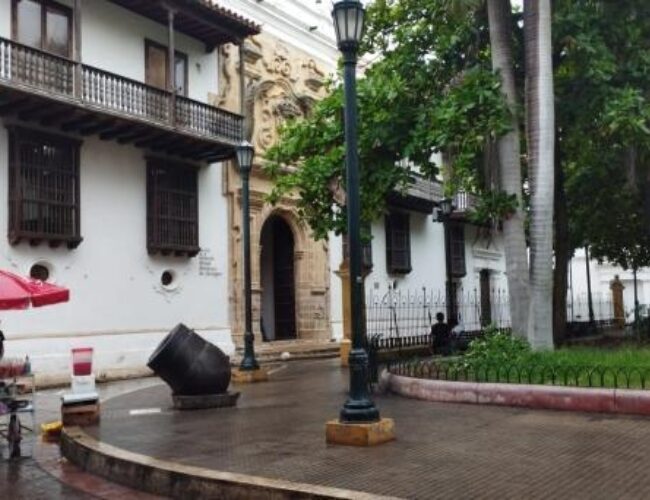Cartagena de Indias was one of the most important centres of the Spanish crown in the 18th century. Though it is designated a UNESCO World Heritage Site, its archival documents have not attracted the same attention as the architectural and cultural aspects of the centre.

The Historical Archive of Cartagena de Indias holds historical sources valuable to investigations of key aspects of the social history of the Colombian Caribbean people. The notarial manuscripts register legal transactions around land, slaves, urban and rural property, cattle, commercial partnerships, and mortgages dating back to the 19th century. They allow the analysis of complex racial dynamics, religious beliefs, and social practices of the peoples during important historical periods of the Colombian Caribbean.
The high temperature and the humidity of Caribbean Colombia put the material at risk of degradation. Moreover, pests, dust and inadequate manipulation increase the deterioration rate.
The project digitised 75,000 notarial documents from the First Notary Office of Cartagena de Indias from 1853 to 1900 and from the Single Notary Office of the municipality El Carmen de Bolívar in the years 1859 to 1861. A collaboration among the Historical Archive of Cartagena de Indias, the Historical Museum and the University of Cartagena allowed to increase awareness of the documents, as well as increasing the number of people competent in techniques for working with fragile notarial documents.
